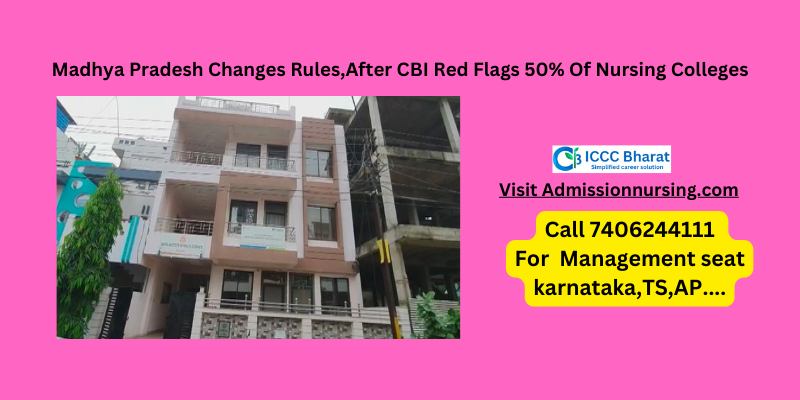In response to heightened scrutiny and findings by the Central Bureau of Investigation (CBI) flagging nearly half of the nursing colleges as ineligible, the Madhya Pradesh government has implemented amendments to the establishment requirements for such institutions. The decision comes amidst concerns over the authenticity and adequacy of infrastructure in many nursing colleges across the state.
Under the revised regulations introduced for the year 2024, the primary criterion for establishing a nursing college in Madhya Pradesh now mandates a minimum space of 8,150 square feet. This represents a significant reduction from the previous stipulation, which required a larger area of at least 19,060 square feet.
This alteration marks a departure from the standards set by the Indian Nursing Council, which advocates for a minimum space of 23,720 square feet, along with other essential facilities such as designated faculty members, a canteen, library, and access to a 100-bed hospital.
A recent investigation conducted by NDTV underscored the glaring disparity between the regulatory requirements and the actual infrastructure of certain nursing colleges. For instance, the Savita Institute of Health Science, situated in Bhopal’s Data Colony, was found operating out of three modest rooms on a single floor of a residential building. This revelation raises concerns about the quality of education and training provided in such establishments.
In August, nineteen such institutes faced de-recognition following revelations of irregularities, prompting the state government to empower the CBI to conduct a thorough examination of all institutions registered in 2020/21. As a result of this scrutiny, nearly half of the inspected colleges (670 in total) were deemed ineligible for accreditation
In light of these developments, the state government’s decision to amend the establishment requirements for nursing colleges reflects a commitment to ensuring transparency, accountability, and adherence to regulatory standards in the education sector. It underscores the imperative of maintaining the integrity and quality of nursing education, safeguarding the interests of aspiring healthcare professionals and the broader public alike.
The state government had sought permission from the High Court to start the process of recognition for 2024/25 and this permission has been given.
